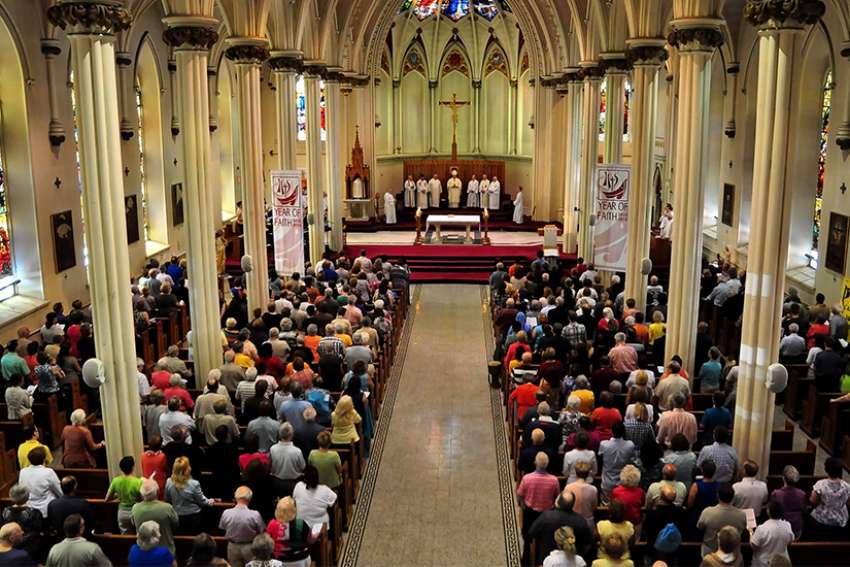That phrase readily and increasingly comes to mind as we put more good and bad days behind us.
For people of my generation raised in the eastern part of this great country, those good old days were occupied with transitioning from one-room country schoolhouses to the halls of larger, consolidated learning centres.
Those good old days saw married couples stick together through thick and thin, until death did them part.
Family life seemed simpler, yet fuller and much more significant as a unifying fabric of society.
Those good old days in the tiny, tight-knit East Coast hamlet that I grew up in meant that both good news and bad news brought the entire community together to rejoice or commiserate.
Most of the people in the community were Catholics and almost everybody regularly turned out for Mass at the stately church standing in the centre of the village.
But times changed and the acceleration of change over the past half century has left many struggling to keep up. The Catholic Church, it seems, may have led the way in falling behind the times.
In this part of the nation, Nova Scotia now has only two Catholic dioceses. The much larger of the two — the Halifax-Yarmouth archdiocese — was forged by a 2010 amalgamation of two dioceses. The entire province is home to fewer than a million people and the merged archdiocese encompasses 11 of Nova Scotia’s 18 counties, blanketing a portion of the province that accounts for about three-quarters of its population.
At the time of the Halifax-Yarmouth archdiocesan amalgamation, more than 200,000 people in that part of the province identified as Catholic. But as of last year, the reality was that 17,000 Catholics plunked themselves down in the pews for weekend Masses in the 65 parishes and missions in the archdiocese. Archbishop Anthony Mancini and his support group had seen enough and insisted that something had to change.
“Everything that we’ve inherited and all the ways that we’ve done things presume a reality that no longer exists because of the change in culture, the change in society,” explained Fr. James Mallon, an energetic priest who works on parish renewal and restructuring for the archdiocese.
“In the history of the Church, in the early centuries, what we call the apostolic era, a time when Christianity was a minority religion, it wasn’t in the power position. It was a very dynamic movement.”
Mallon said that after the first century, Christianity became a dominant religion in the western world, a dominance that prevailed up to the last 30 years.
“We find ourselves firmly back in that (apostolic) category,” Mallon said. “Now, it’s a matter of saying how do we adapt how we do things to this new reality?”
Consultation and discussion became the order of the day for the past two years among archdiocesan and parish leaders, thinkers and doers. Early this month, the long-awaited plan was delivered to parishioners at weekend Masses and on the archdiocesan website.
The reorganization will transition by year’s end 90 church buildings that support 65 parishes into 20 new mega-parishes to be served by 43 active priests.
“The pressing reality is not a shortage of priests, it’s a shortage of people,” Mallon said. “We actually have a higher ratio of priests to people than we ever had in terms of people who actually go to church. Part of the problem is that we think the priest solves everything and the priest doesn’t. That’s the mindset that needs to shift.”
Each new parish will have multiple churches, one pastoral council, one finance council and a leadership team of clergy and lay people. The 20 parishes will decide Mass schedules at the various buildings, what church buildings to keep open and what churches to shut down.
“The plan is out, now we just have to roll up our sleeves and start doing it,” Mallon said.
The good old days in the archdiocese and in the Church are gone. Now, the archbishop, clergy and all practising parishioners have little choice but to embrace Mallon’s new day.
(Campbell is a reporter at the Halifax Chronicle Herald.)

